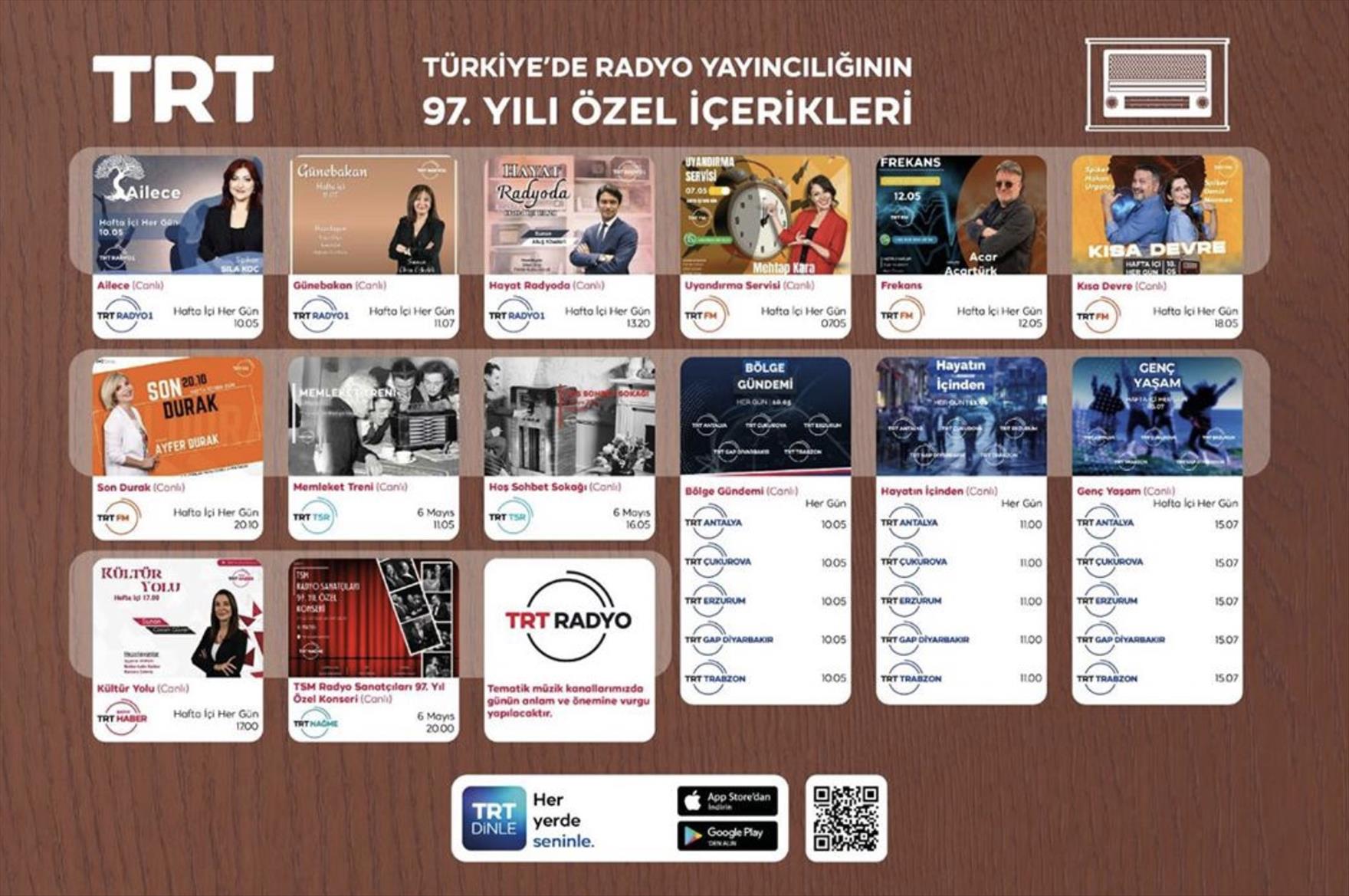PAU Academician Becomes the Special Guest of Radio 1 Program on the 97th Foundation Anniversary of TRT Radios
The live broadcast special guest of the “6 May 1927 TRT Radios 97th Foundation Anniversary Radio 1 Special Program” was Pamukkale University (PAU) Faculty of Communication, Department of New Media and Communication Head Assoc. Prof. Dr. Emel Dikbaş Torun.

PAU Faculty of Communication, Department of New Media and Communication Head Assoc. Prof. Dr. Emel Dikbaş Torun answered the questions directed to her as the guest of the special program generation broadcast on TRT Radio 1. Founded on May 6, 1927 and broadcasting for ninety-seven years, the program, which was specially prepared for the anniversary of the establishment of TRT Radios, discussed the past, present and future of radio, the social effects of digital media and disinformation.
Starting his speech by celebrating the ninety-seventh anniversary of the establishment of TRT Radios, PAU faculty member emphasized that TRT is the social memory of all of us, and that its place is always completely different with its mission and corporate identity that does not compromise its broadcasting principle that has been shedding light on our society for years with its educational and instructive content. Assoc. Prof. Dr. Torun congratulated all TRT staff who have successfully carried out a very difficult job and have been working for ninety-seven years for this cause and wished to celebrate many more ninety-seven years. He also expressed his pleasure to be the special guest of this special broadcast on such a day and expressed his honor and thank you.
Assoc. Prof. Dr. Torun: “With digitalization, each new technology does not kill the previous one, on the contrary, it transforms it and develops it further.”
In this age where mass media has reached a crazy level, it is very important to position the radio with its distinctive features, that radio can reach audiences in a short time in harmony with digital content such as podcasts, as well as the advantage of instant interaction and local content with live broadcasts, and that integration with other digital platforms and the use of social media can also be an important strategy to make the radio experience interactive. Underlining that the media has an important role in shaping people's thoughts, attitudes and behaviors, the faculty member explained that the consumption of popular culture and temporary media content reflecting that culture by large masses has permanent effects such as directing society to a certain worldview, value system and lifestyle in a short time. For this reason, he stated that the impact of the media has a great responsibility on society and that it is necessary for media organizations to manage this impact consciously.
Explaining that the professions and future plans of the young generation have also changed depending on the digital transformation process in terms of micro-celebrity, which has become visible with the widespread use of social media in recent years, the lecturer said, “In the past, when we asked children ‘what will you be when you grow up?’, Children who said they would be doctors, pilots, garbage collectors now give answers such as Youtuber, Influencer, Gamer, I will open a Youtube channel, upload videos and earn money from advertising”. She stated that micro-celebrity can be explained as the phenomenon of people who have emerged with the widespread use of social media platforms and who are generally known in a certain subject or field but do not appeal to a large audience as traditional celebrities, and that these micro-celebrities, also called internet celebrities, are ordinary people who become famous in a short time thanks to the content they produce on social media with their online identities. He explained that micro-celebrities have more impact on Generations Y and Z than traditional celebrities because these generations do not watch television.
Assoc. Prof. Dr. Torun: “Disinformation is a serious problem in mass communication because the dissemination of misleading or manipulative information can cause a loss of trust and chaos in society by deliberately preventing people from accessing accurate information.”
“In a world that has turned into a global village, as communication theorist Marshall Mcluhan says, the boundaries of time and space have disappeared thanks to social media. Unfortunately, the problem of disinformation has also emerged. He explained that disinformation is a serious problem in mass communication because the dissemination of misleading or manipulative information can cause a loss of trust and chaos in society by deliberately preventing people from accessing accurate information. This can threaten the democratic functioning of society and the ability of individuals to make informed decisions. Assoc. Prof. Dr. Torun stated that the fight against disinformation is possible by including awareness and media literacy education as an understanding in the education system because individuals should be given the ability to distinguish between the truth and falsehood of news in the media. He also emphasized that media organizations should not give up on adopting journalism based on ethical and moral values as a principle.
At the end of the program, PAU academician Torun, who gave various advice to university students, said, “Generation Z is a generation that is well versed in technology, which is a natural product of the digital age, and experienced in using social media. Young people can play an active role in changing the future of media. Generation Z grew up in an environment where they can make their voices heard using the power of social media and digital platforms. Professions such as communications specialization can equip young people with the skills to use the power of media ethically and effectively. These professions allow young people to contribute to social change. Therefore, the popularization and preference of professions such as communication specialization among young people can have a positive impact on shaping the future of media.”
